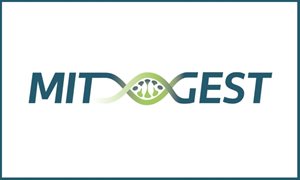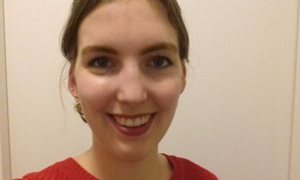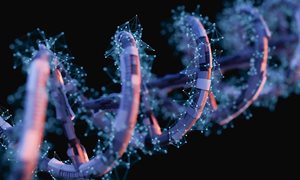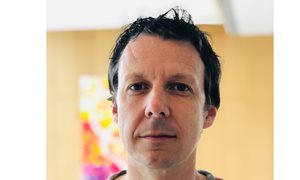 My name is Heidi Zweers. I’m a dietitian and PhD candidate at the Department of Gastroenterology and Hepatology-Dietetics. My research theme is Mitochondrial diseases.
My name is Heidi Zweers. I’m a dietitian and PhD candidate at the Department of Gastroenterology and Hepatology-Dietetics. My research theme is Mitochondrial diseases.
When you were a kid what did you want to be when you grew up? Can you tell us something about your child years.
I grew up with my mom, dad and little sister. My mother is a nurse and my father had a technical profession. My father noticed my talent for physics, math and chemistry and hoped I would choice a technical profession, like him. It didn’t turned out his way because at the age of 13 I already knew I wanted to become a children’s dietitian. At the age of 21 I reached this goal. I worked as a metabolic children’s dietitian for 13 years and then I transferred to the adult metabolic clinic.
What was your previous academic training, where did you study and why that study?
I got my bachelor degree Nutrition and Dietetics at the University of applied science HAN in Nijmegen. Since I graduated before 1998, it is allowed for me to do my PhD without master degree. My PhD project is very different from most of the researchers of the RIMLS. I work most of my time in patient care and I have no financing for my research. So it is a part-time project that takes up a lot of my free time.
The RIMLS motto is: ‘Today’s molecules for tomorrow’s medicine’. What does this mean for you?
In metabolic dietetics a lot of biochemistry is involved. We try to translate the defect in the metabolic pathway tot practical nutritional advice to improve quality of life for patients. It is necessary to understand the molecules and pathways to come up with new treatment strategies. For me medicine is a synonym for treatment strategies including nutrition and lifestyle interventions.
Who is your great example as scientists? And please give a motivation why.
Greet van Rijn. She is the first metabolic dietitian who got her PhD. She went to congresses all over the world and published al lot of articles. Because she did, I knew I can do it to.
Which research discovery that you have made has made you most proud?
I did an explorative RCT with individual tailored diet intervention. This is never been done before and I used personal goals as an endpoint. We confirmed what I already knew from practise, that handgrip strength and vitality improved in adult mitochondrial patients with the m3243 mutation.
Given unlimited finance what experiment would you perform?
An international RCT multicentre study on diet interventions for patients with mitochondrial disease and gastro intestinal problems.
What does your working area (desk, office) look like and what does it say about you (or your research)?
We work with flex workplaces so I don’t have my own workspace. I do a lot of the writing at home at the dinner table on my own laptop. I make a big pot of tea so I can keep on working. I don’t print a lot of papers. I read everything digitally and in endnote I can make notes or highlight important paragraphs in yellow. I think visually and it helps me to make a PowerPoint before I write my article. My workspace is practical an so is my research.
Nominate a colleague to be in the spotlight and what would you like to ask him or her?
I nominate Manon van den Berg and I would like to ask her how she experienced her first PhD defense as a co-promoter.
What type of person are you, quick insights:
a) Mac or PC? : PCb) Theater or cinema? : Theatre
c) Dine out or dine in? : Dine out
d) Ferrari or Fiat? : Fiat
e) Shopaholic or chocoholic? : Workaholic
f) Culture or Nature : Nature
Related news items

Hans Spelbrink is beneficiary of the MITGEST Doctoral Network which receives 2.6 million euros funding (PhD positions available)
27 September 2022EU has granted the new Doctoral Network “MITGEST” (Quality Control of the Mitochondrial Gene Expression System in Health and Disease), of which Radboudumc is one of the partners, with 2.6 million euros of funding under the Marie Sklodowska-Curie Actions.
go to page
Towards a better understanding of Leigh Syndrome pathology and intervention published in Brain
8 December 2021 Melissa van de Wal and colleagues recently published a comprehensive review in the journal Brain on how Ndufs4 knockout mouse models have been used to unravel the pathomechanism of Leigh Syndrome. go to page
New genetic defect links cell biology and protein glycosylation
10 November 2021 Peter Linders, Dirk Lefeber and Geert van den Bogaart together with international colleagues have recently reported on novel cell biological insights, by identifying a genetic disorder in syntaxin-5 which allowed to unravel a new mechanism regulating intracellular transportation. go to page
Christian Gilissen appointed professor of Genome Bioinformatics
22 October 2021 Christian Gilissen has been appointed Professor of Genome Bioinformatics at the Radboudumc / Radboud University as of 1 October 2021. go to page
RIMLS awards call for nominations
19 October 2021 RIMLS awards several prizes to stimulate and honor our (young) researchers. Upcoming awards are Supervisor of the Year, Best Master Thesis, Best Publication, Best Image and more. Send your nominations now before 24 November 2021. go to page
